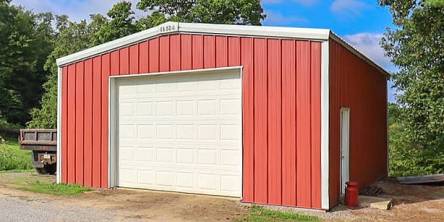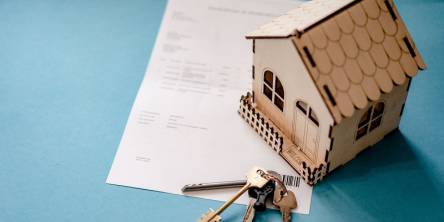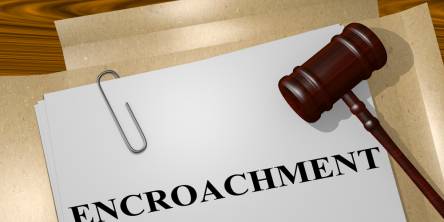How Does Escrow Work in Real Estate
What to Know About Escrow and Earnest Money
There are many terms you’ll need to get your head around if you want to have a deep understanding of real estate. One of those words, which you may have heard before in many different contexts, is “Escrow.”
Escrow is often referred to as earnest money as well, although that is not necessarily the definition or meaning of escrow. Today, we’re going to make sure you understand what an escrow account is and how it can be used to your advantage, whether you’re buying a new place to live or selling the one you’ve outgrown.
Understanding Escrow in Real Estate
Escrow is a legal agreement where an outside party holds a large sum of money until an agreement has been met; in most cases, this condition is a purchase agreement. Escrow is typically held in a real estate transaction by one of three parties: a real estate company, a title company, or an attorney. This type of thing is used for two unique reasons;
- Protecting the good faith payment, so the money finds itself with the correct party inlined with the rules of the sale.
- To keep funds safe for future payments on taxes or insurance.
Due to the reasons above, two separate escrow accounts are currently being used throughout the real estate industry. One is used during the home buying process, while the second one is used throughout the entire life of a loan a homeowner may have taken to help cover property costs. We’re going to talk more in-depth about these accounts right now…
Escrow Accounts For Home Buyers
When purchasing any real estate, within your purchase agreement, you will usually find this will include a good faith deposit, which is known as earnest money or earnest money deposit. This deposit helps to show just how serious you are about purchasing the property in question.
These funds provide security to a seller that a buyer will not just "walk away" from the transaction. The earnest money holds a buyer accountable as nobody wants to lose thousands of dollars. An earnest money deposit will range anywhere from one percent to five percent of the purchase price in most areas. It is not uncommon for an earnest money deposit to be as high as ten percent with new construction.
If the buyer breaches the contract and the sale falls through, the seller will keep the earnest money as compensation. If the home purchase is successful, then the money given for the good faith deposit will be applied to the overall down payment of the property. To protect both the buyer and the seller, an escrow account will be set up to hold these funds for the meantime, with them sitting in the escrow funds account until the buying transaction has been fully completed.
In some cases, this money can be held in there even after the completion of the sale. There can be a few reasons for this, such as you may have found something wrong with the property during your final walk-through or a repair that was agreed upon has not been completed. Something like this would be called an escrow holdback. The monies would remain in escrow until the point in time the seller has satisfied their obligation of making repairs.
Are There Exceptions For Holding Earnest Money?
Yes, at times, there is the possibility that a buyer will not have a down payment. For example, if they are using VA or USDA loan financing, a down payment is not required. However, it is still advisable that a buyer still come up with earnest money funds when making an offer, if possible. Without any earnest money, a seller will be far more reluctant to take their home off the market without any security.
Escrow Accounts For Taxes and Insurance
The second version of an escrow account can come into play after purchasing a property; your lender may establish one of these accounts to pay for your taxes and your insurance.
Your lender takes a chunk of your monthly mortgage payment and holds it within the account until the due date of your tax and insurance payments. The size of this payment depends on a few things, though the lender will analyze this account year on year to make sure they’re not putting away too much money or not enough.
Of course, if the latter is the case, then you’re going to need to pay back the difference; this can be done through a one-time payment or by increasing your monthly mortgage payments so that you can eventually make this difference over many months.
What Your Escrow Account Won’t Cover
Although there to cover certain expenses, Escrow accounts will not cover other things related to homeownership, such as your utility bills. Supplement tax bills are also not covered by your escrow accounts.
Benefits of Having an Escrow Account
One of the main benefits of having an escrow account, whether you’re going to be buying or selling a home, is that you’ll be protected throughout the transaction. Protecting you to ensure that you have money to pay for things like property taxes and insurance when those bills inevitably arrive. To recap:
- Allows you to keep money safe to pay off taxes and insurance.
- Tax and insurance payments will be made automatically, so you never miss a day.
- The service will cover funds if you can’t pay taxes and/or insurance that month (due to lack of funds in the escrow account). However, you’ll have to pay this back.
Final Thoughts on Escrow and Earnest Money
Having earnest money held in an escrow account is vital during a real estate transaction. It keeps the parties accountable for keeping up their end of the bargain. It would be foolhardy as a seller not to have a decent amount of earnest money held in an escrow account for protection.
Other Helpful Articlecube Real Estate Resources
Use these additional Articlecube resources to make great real estate decisions.
- The benefits of using Credit Karma - are you going to be buying a home? Do you have credit scores that need improvement? One of the best ways of getting those scores bumped up is by using a credit improvement service such as Credit Karma. See how Credit Karma can be vital in getting better mortgage terms and conditions.
- What to know about flat fee MLS - when selling a home one of the most powerful marketing tools is having your home listed in the MLS. While getting to MLS is vital it is not the only important thing when selling your house. See all of the pros and cons of going with flat fee MLS. You might be surprised after reviewing the drawbacks.
Similar Articles
Portland, often called the "City of Roses," is where natural beauty meets a commitment to sustainability. This vibrant city in the Pacific Northwest has gained a reputation for its green lifestyle and eco-conscious culture
Metal storage building kits have become increasingly popular among property owners looking to maximize their storage space and add value to their properties. These kits offer an affordable and versatile solution for creating additional storage space without needing professional construction services.
Discover the efficiency of specialised legal searches. Uncover key information and navigate legal complexities with the power of specialised legal searches.
Moving can be an exciting time, but it can also be a stressful and expensive endeavor. It is a significant amount of work, from hiring a mover to packing to moving day. One of the major expenses when moving is purchasing moving boxes. However, there are several ways to get free moving boxes in Massachusetts, saving you money and the hassle of searching for them.
In a bustling city like Dallas, where the urban sprawl can be extensive, choosing an apartment with easy access to public transportation is a smart move for commuters.
For an outsider, the world of real estate looks impressive and genuinely easy to explore. Be that as it may, this couldn't be any further from reality. The world of the real estate sector has shown to be a complex and steadily changing business sector — one that has come so far from what it used to be only a few decades prior.
Are you in the market for a new home, but not quite ready to buy? Renting houses for rent can be a great option, but it can also be overwhelming. Where do you start? How do you find the perfect home?
Several states offer attractive opportunities when looking for affordable options to build a house in the United States. Oklahoma stands out with its cost-effective land and construction options, while Alabama compares building and buying existing homes. In Mississippi, there are budget-friendly areas for constructing houses.
Understanding property encroachments in Massachusetts is crucial for homeowners and buyers. Massachusetts law allows property owners to take civil action to remove an encroaching structure, provided they can prove ownership and successful adverse possession. Resolving disputes through negotiation is recommended, but legal options exist if necessary.









